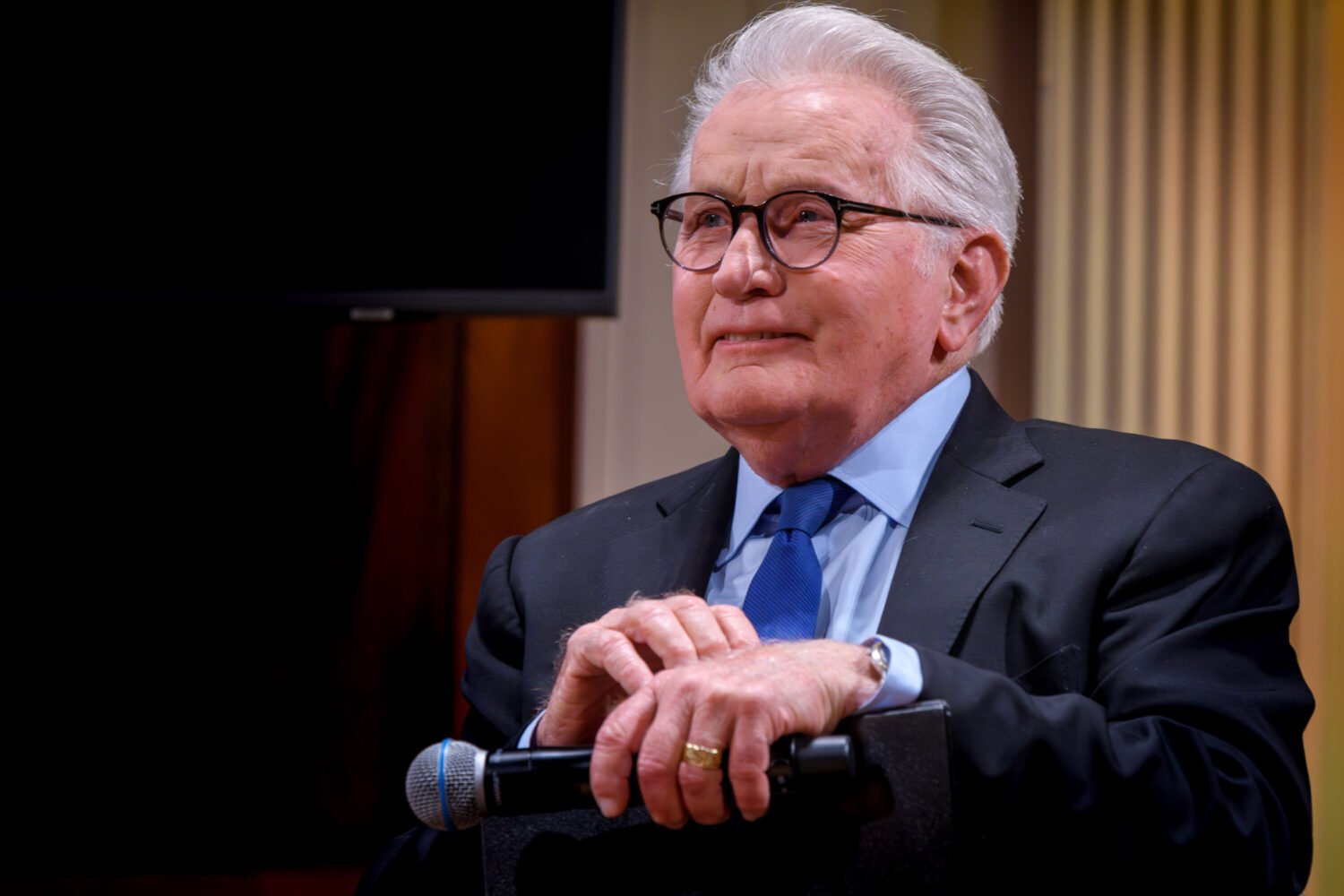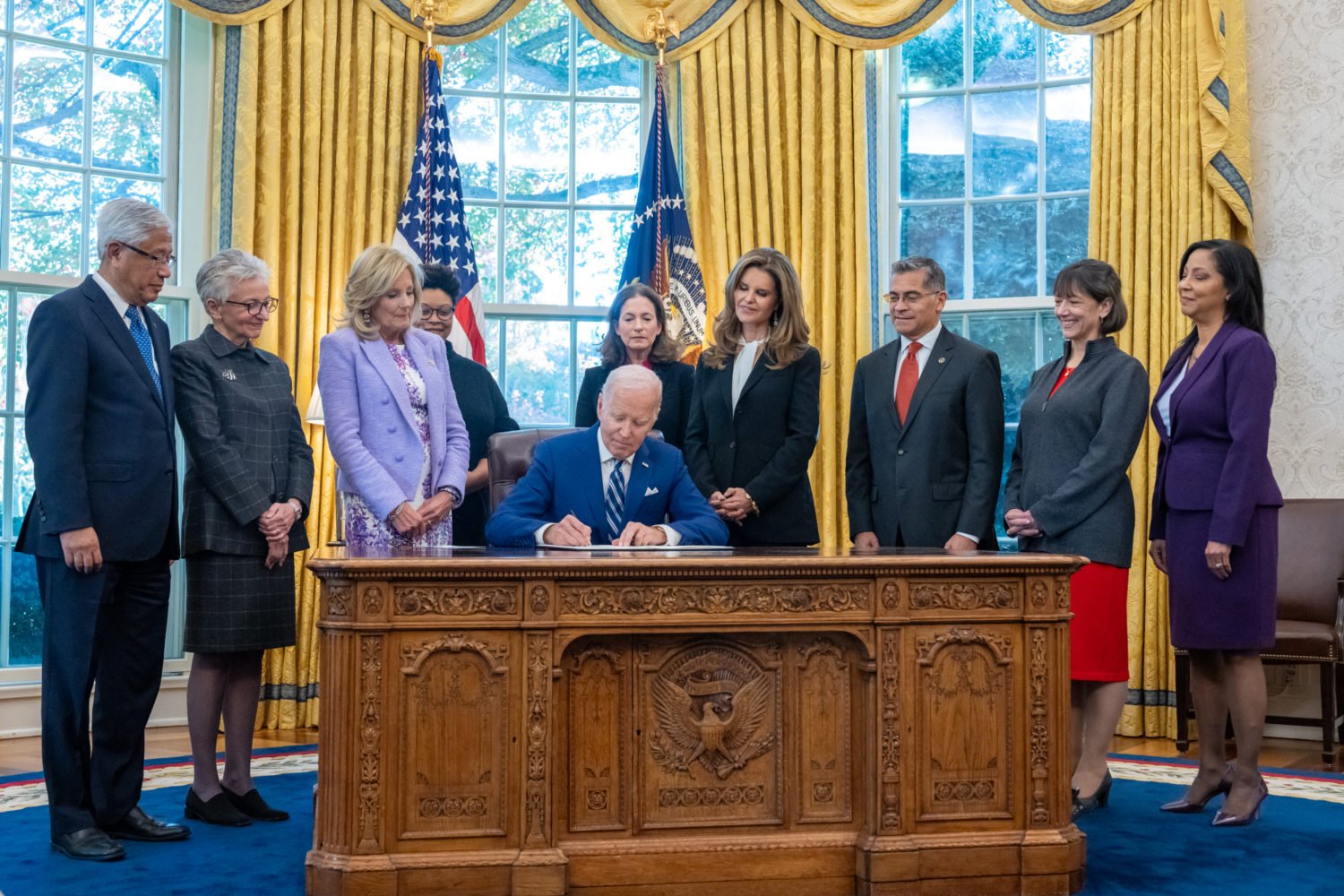DENVER—John McCain can’t win the November election. That’s not to say, of course, that Barack Obama can’t lose the November election. Make no mistake—Obama could still lose big. But for better or worse, this election isn’t about John McCain.
As we watch the dynamics of the election shape up and Democrats convene here in Denver to celebrate the nomination of a new type of presidential candidate—one who not only is the first African-American to head a national ticket but also represents a new generation of hope and change in a way that only a few transformational candidates in history have ever done—it’s clear that this election is Barack Obama’s to lose and that he might, against the odds, do just that.
This weekend saw a clear example of how he might go about it.
He should have spoken with Clay Shirky before he announced his selection of Joe Biden in what will forever be known as the 3 AM text message on Saturday. Shirky, one of the great thinkers of the new age of media, argues in his book, Here Comes Everybody: The Power of Organizing Without Organizations, that a successful online venture requires three things: a plausible promise, an effective tool, and an acceptable bargain with the users. As he explains, “The promise is the basic ‘why’ for anyone to join or contribute to a group. The tool helps with the ‘how’—how will the difficulties of coordination be overcome, or at least be held to manageable levels? And the bargain sets the rules for the road: if you are interested in the promise and adopt the tools, what can you expect, and what will be expected of you?”
Obama has done a great job so far in the campaign with two-thirds of this list: The tools he’s provided to supporters—from his Web site to his grassroots field organization—are second to none, and the bargain of supporting his campaign to restore hope and make change couldn’t be clearer from his messaging.
It’s the third part of Shirkey’s triad that he might screw up.
For the past two weeks, he promised supporters that they would be the first to know his vice-presidential pick if they signed up to receive a text message from him. He was asking for perhaps the most personal piece of data in today’s world other than a Social Security number—a cell-phone number. Pollsters can’t call a cell number, and it’s not publicly listed. In order to get it, he promised to trade an important piece of information in return and to make people feel part of “their” campaign. Obama is purporting to lead a movement, and the movement needs to feel ownership.
He didn’t live up to his end of the bargain, waiting too long in the week as anticipation built, then letting the traditional media break the news first, and then texting everyone Saturday night while they were sleeping. He missed the opportunity to create a national moment as people talked about receiving the message and passed it along to their friends. Moreover, as was clear from reaction on sites such as Twitter and blogs over the weekend, his supporters felt misled.
As NYU professor Jay Rosen explained this weekend, Obama told his supporters, “We’ll inform you; you inform everyone, else, okay?” “Okay!” “Change of plans–we’ll inform everyone else and they’ll inform you.” “Uh, wait.”
That bait-and-switch is not the way to build a movement or win an election. More troubling than this example, though, is the sense that this is only the latest instance of what could be Obama’s biggest liability this fall: He’s too cute by half.
From his aborted presidential-seal-like campaign logo to his speech in Berlin’s Tiergarten to his squirrelly answers at the Saddleback Forum with pastor Rick Warren to the text message about Biden’s selection, there’s growing sense among campaign observers that Obama is breaking a few too many rules, seeming just a little too entitled, playing it just a little too cute.
This fall, Obama needs to demonstrate that he deserves the top office in the land, that he’s mature enough to handle it despite his managerial inexperience, that just because he’s different in generation, color, and attitude from all those who have come before him, that doesn’t mean he can’t be serious when he needs to be.
One way to do that is to live up to the promises you’re making. As Hillary Clinton argued in her campaign this spring, the presidential election is about choosing who will answer that 3 AM telephone call—not who will send the 3 AM text message.
After all, if we can’t trust you with our cell-phone numbers, why would we trust you with our security and our economy?
Garrett Graff is in Denver all this week, reporting from the Democratic National Convention. Head here for his coverage of parties, people, politics and more.

















